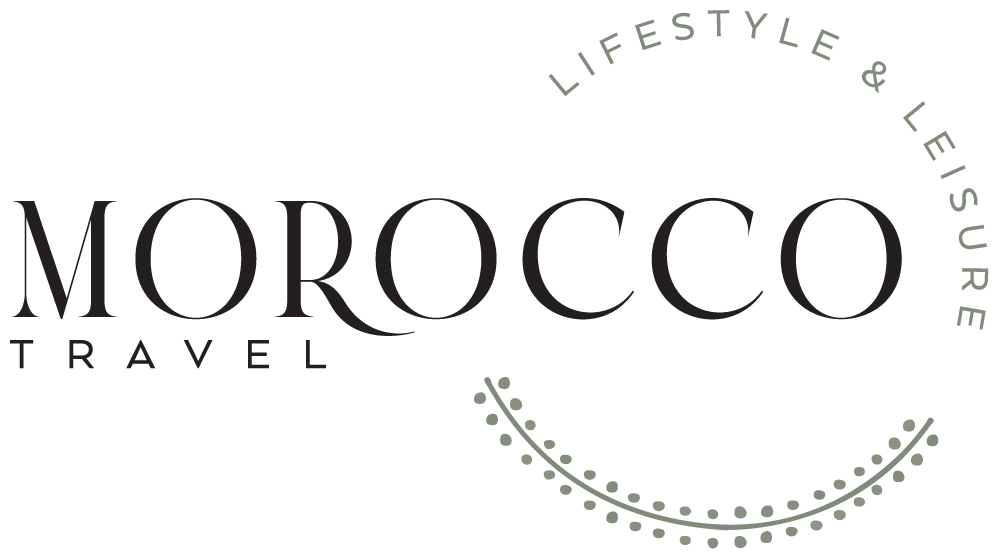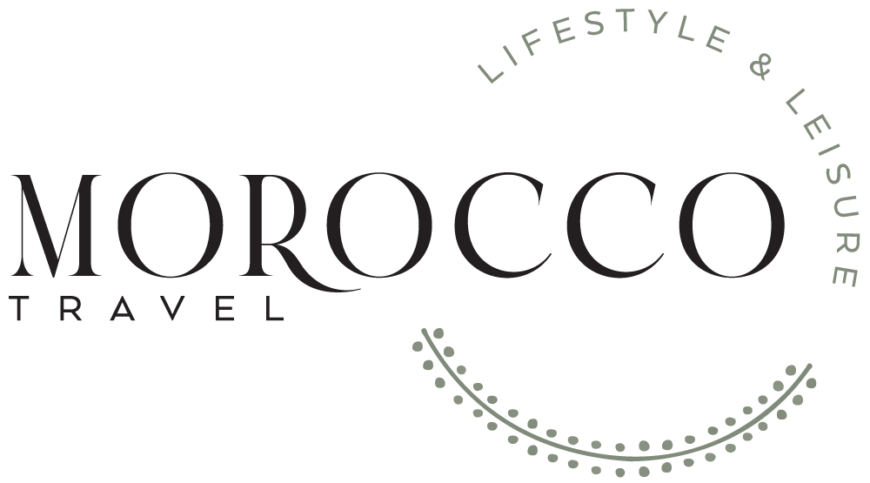How to Choose a Tajine to Take Home from Morocco
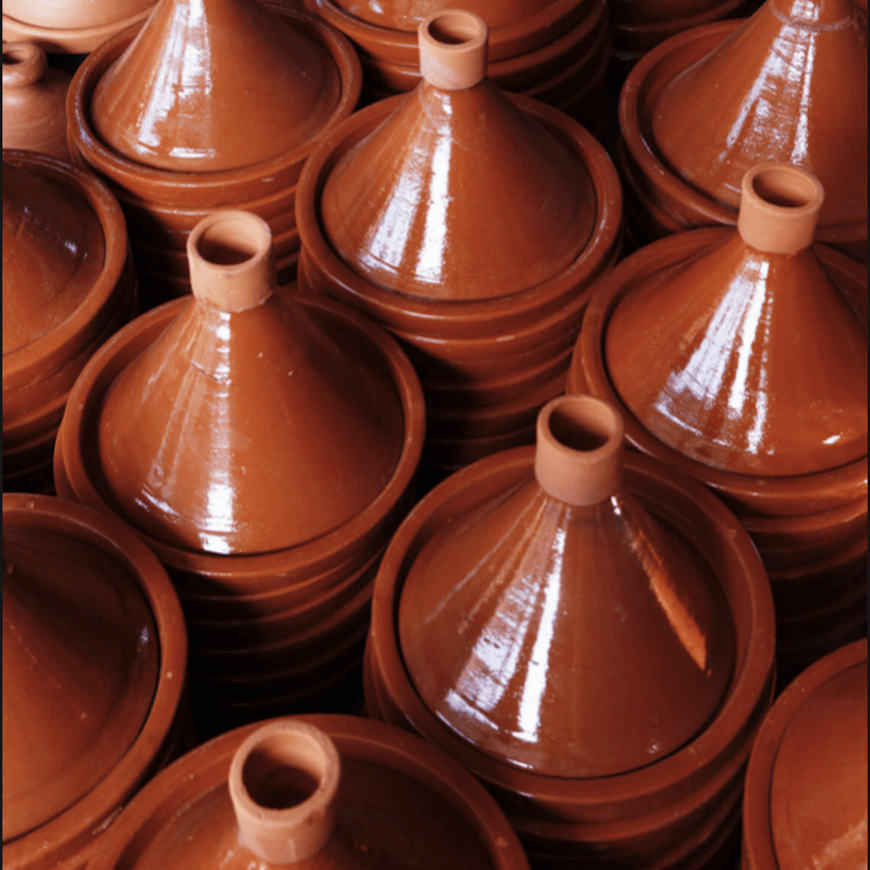
A souvenir at the top of your list when visiting Morocco is most likely an is an authentic Moroccan tajine. That is until you discover how many different options exist for purchase. It can quickly become overwhelming and frustrating. We recommend that you do a little bit of research ahead of time so the experience […]
What’s a Tajine Anyway?
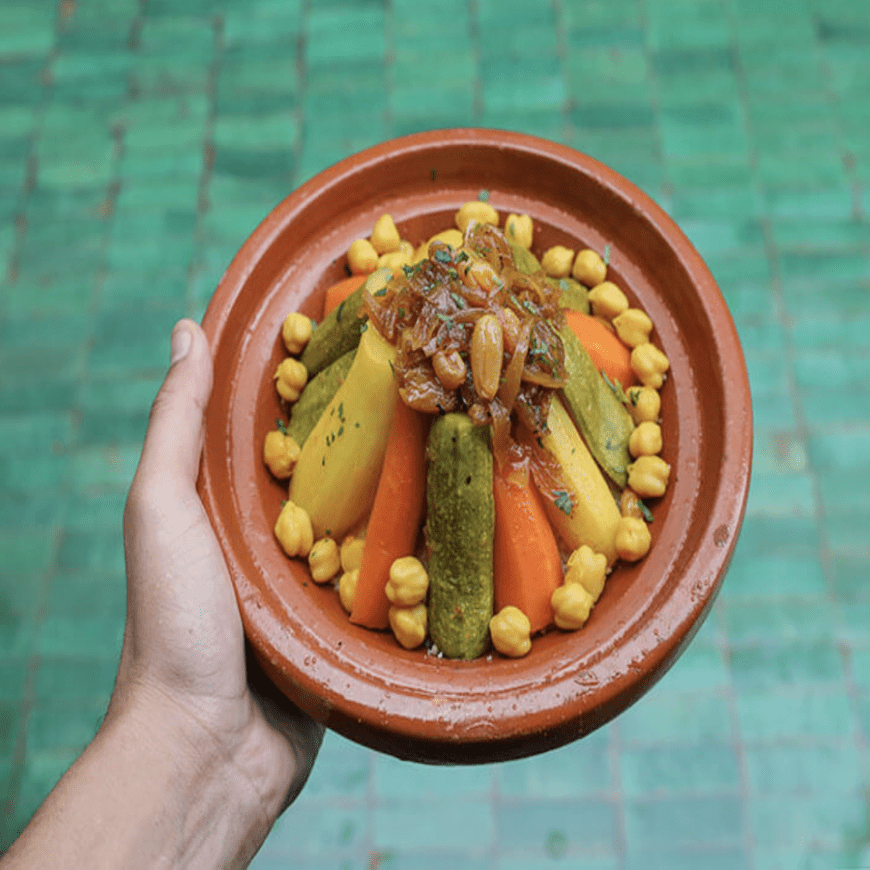
After couscous, the first food travelers encounter in Morocco is the tajine. Admittedly there is a lot of confusion about what a tajine is or isn’t. There are two definitions of the word tajine. First, it is a slow-cooked stew. Second, it is the name of the vessel that the food is cooked in; a […]
How to Tour Morocco on a Culinary Adventure
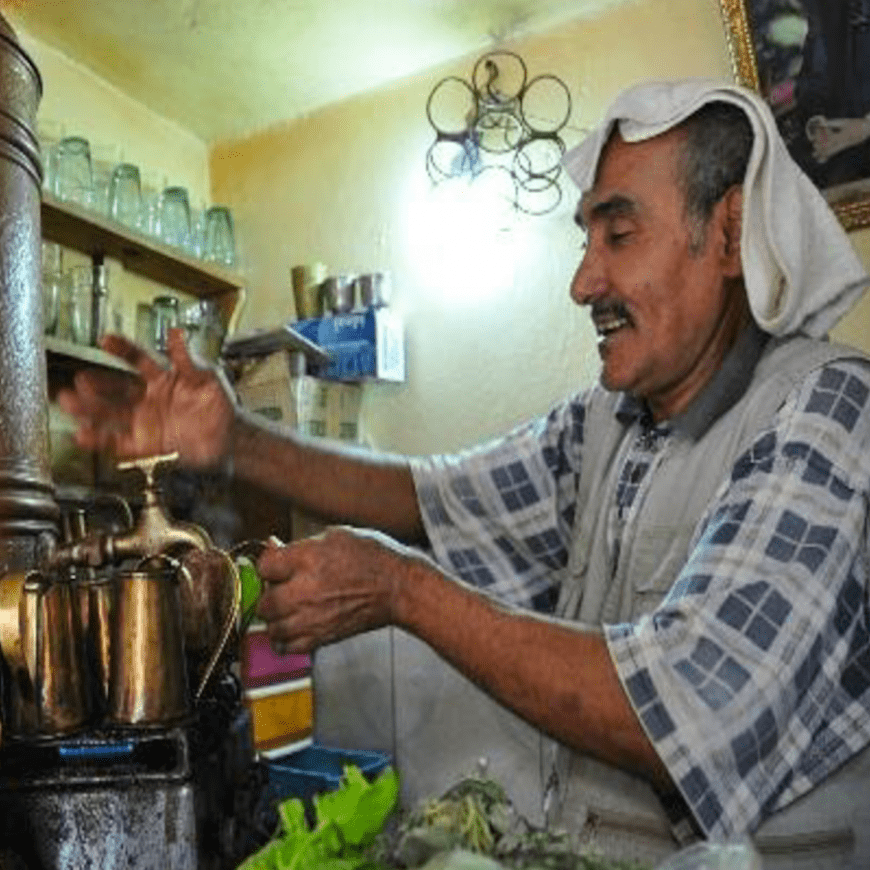
From the populated ancient medinas in the Imperial Cities to the dusty Desert region to the great Southern rural villages, seaside towns and farm communities, a Travel Exploration Moroccan Food Tour
Fes Gourmet Festival, A Taste of Morocco in 2015
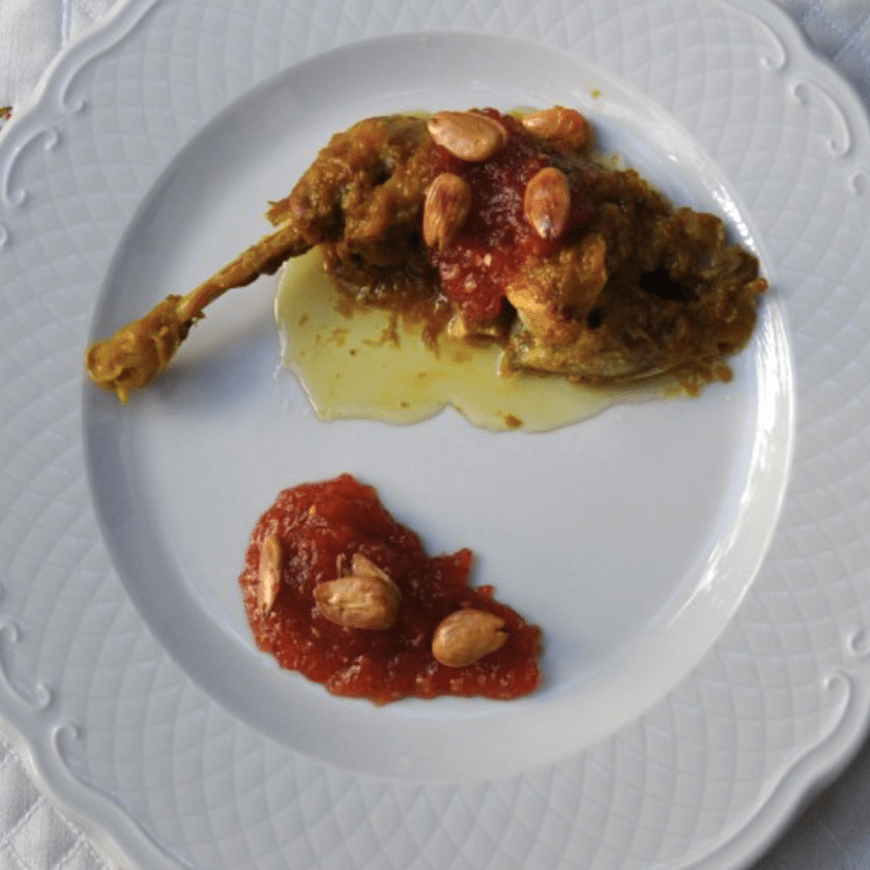
Travel Exploration announces our Imperial City fall cuisine tour slated for November 2015 with a focus on Fes-Gourmet. Inclusive in this gastronomic adventure for foodies are daily Morocco food tours and evenings of delight at the celebrate the Fes-Gourmet festival. The Fes Gourmet Festival is an experience not to be missed and a perfect inclusion on a private tour to Morocco for foodies and leading chefs. Visit Fes with Travel Exploration this November for a once in a lifetime culinary adventure and a Taste of Morocco. Participate in dining at over 10 riads in the Fez medina who offer up unique dishes indigenous of traditional Fes.
Tasting Marrakech, An Urban Food Tour
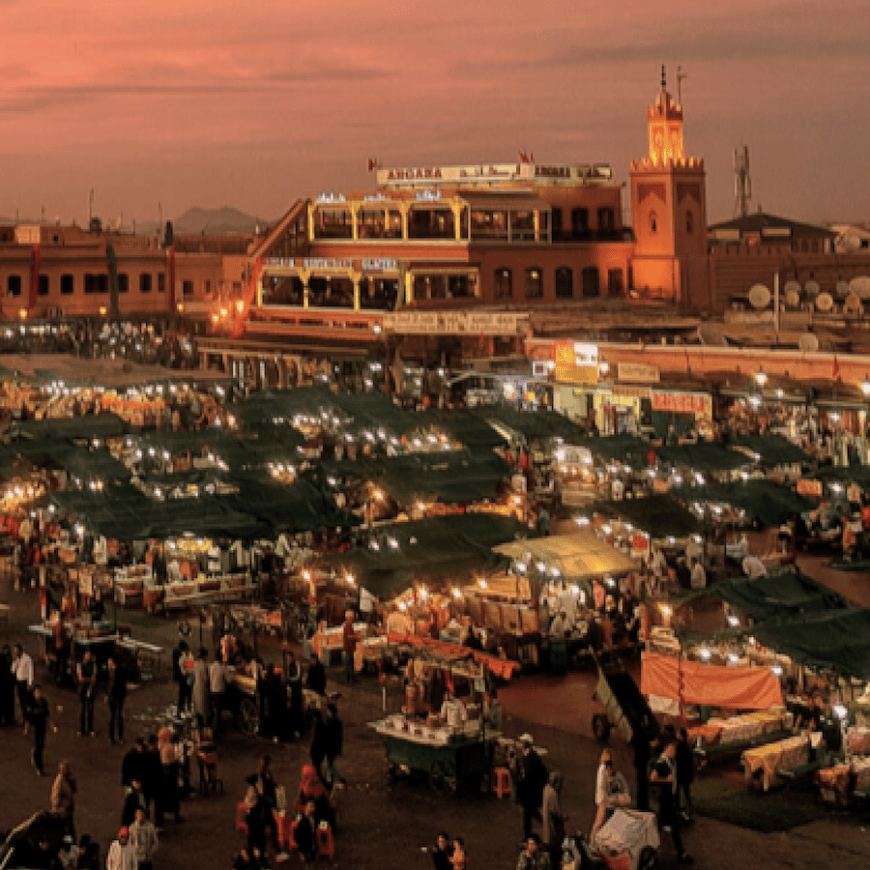
Experience the famous Djemaa el Fna at sunset on this authentic Food Tour, Tasting Marrakech. Get ready for an evening of Tasting Marrakech in the Djemaa El Fna Square lead by a licensed guide and special host who will take you on an authentic culinary journey of local Moroccan cuisine. Experience a five-course dinner tasting local street food.
10 Street Foods to Eat When Traveling to Morocco, Your Morocco Tour Guide
Moroccan Street Food is a great way to discover Morocco’s local culture. While the best Moroccan food is said to be found in a Moroccan home, very reasonably priced street food is available in small stalls and roadside cafés all over Morocco. Eating Moroccan Street Food in the old medina of Fes, Marrakech and Essaouira allows for a great opportunity to meet Moroccans during breakfast, lunch and dinner or just for a snack. Moroccan Street Food is also the best way to discover local Moroccan fresh foods that are well cooked and full of flavor.
Moroccan Ramadan Sweets and Soups
Moroccan soups are tasty and fortifying and are accompanied during Ramadan with an assortment of sugary sweets to boost energy levels after a day of fasting The Ramadan fast is broken with harira a lentil and tomato based soup. dates and dried figs and chebakia, which are flower-shaped cookies soaked in honey and sprinkled with sesame seeds. Sweets are an integral part of the social aspect of Ramadan and the ftour meal.
Ourika Valley’s Nectarome Products and the Moroccan art of body care
In the village of Tnine in the Ourika valley Nectarome has an organic garden with aromatic plants and medicinal herbs where their products are created and a shop selling a range of soaps, shampoos aroma therapy and massage oils. There are also several outlets in Marrakech and Casablanca. The company has a team of experts in essential oils and pharmacy.
Fes food: Eating Well in Fes,Your Morocco Tour
Fes is the culinary and cultural capital of Morocco. The world famous Fes Sacred Music Festival takes place 7-15 June and Dar Roumana’s restaurant at 30 Derb el Amer Zkak, Roumane in Fes Medina will be open every day offering pre-concert dinners from 6pm – 8pm Dar Roumana will be offering a smaller menu (2 starters, 2 mains and 2 desserts) for a reduced price of 300dh for three courses or 225dh for two courses. For those not attending the festival Dar Roumana’s usual dinner service will continue as normal from 7.30pm – 9pm. It is essential to book well beforehand during this busy period in Fes. Dinner is served in the patio and on the Dar Roumana terrace with spectacular views of the Fes medina and includes varied delicacies such as roasted beetroot, orange, mint and feta salad, spiced roasted quail with dried fruit orzo, moroccan fishcakes with cucumber and radish ribbon salad and sweet harissa dipping sauce, baked chicken thighs with honey, hazelnut and saffron with carrot and cumin mash.
Moroccan Wine & Vineyards, Wine & Food Tasting Morocco
Wine production in Morocco is believed to have been introduced by Phoenician settlers, and was definitely established in the era of Ancient Rome. Large-scale wine production with extensive vineyards was introduced into Morocco by the French during the protectorate as it was in Algeria and Tunisia. Today’s regions in Morocco that have become famous for wine are Meknes, Casablanca and Essaouira.
